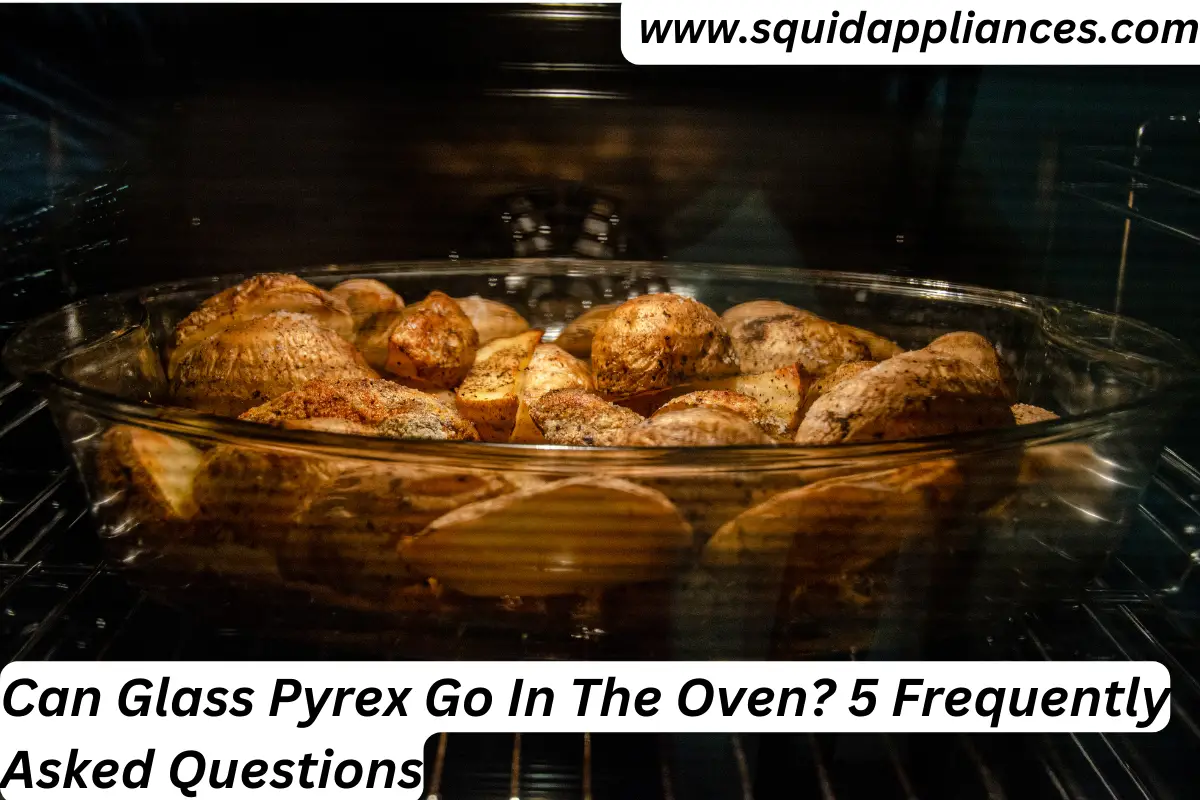Hey there! So you’re wondering if glass Pyrex can go in the oven? Well, you’ve come to the right place.
As someone who loves to cook and bake, I’ve had my fair share of experience with Pyrex in the oven. In this article, I’ll be answering five frequently asked questions about using glass Pyrex in the oven.
First things first, we’ll dive into understanding the material composition of Pyrex and whether it’s safe for high temperatures. Then, we’ll explore how to determine the oven-safe temperature range for your specific Pyrex dish.
Safety is always a priority, so I’ll also provide some precautions you should keep in mind while using Pyrex in the oven.
Of course, after cooking up a storm, cleaning and caring for your Pyrex is essential. I’ll share some tips on how to do that effectively.
And finally, if you’re looking for alternatives to Pyrex for your baking needs, I’ve got you covered too.
So let’s get started and unravel all your doubts about using glass Pyrex in the oven!
Can Glass Pyrex Go In The Oven?
Yes, glass Pyrex can go in the oven! Pyrex, made of durable borosilicate glass, withstands high temperatures from -40°F to 450°F (-40°C to 232°C) without shattering. Following precautions like gradual temperature changes and proper care after use ensures safe and effective baking. Alternatives like ceramic or silicone molds offer diverse baking options.
Key Takeaways
- Glass Pyrex is a durable and heat-resistant type of glass that can withstand high temperatures in the oven.
- Proper cleaning and care are important for maintaining Pyrex quality, and abrasive cleaners or scrub brushes should be avoided.
- Ceramic and stoneware bakeware can be used as alternatives to Pyrex, offering even heat distribution and heat retention.
- Silicone baking molds are flexible, non-stick, and easy to clean, providing versatility and durability in baking.
Understanding Pyrex Material Composition
So, what exactly is Pyrex made of? Pyrex is a type of glass that’s known for its durability and heat resistance properties. It’s composed of a special borosilicate glass formula, which allows it to withstand high temperatures without breaking or shattering.
This makes Pyrex perfect for use in the oven, as it can handle the heat without any issues. Its heat resistance limits make it a popular choice among home cooks and professional chefs alike.
Determining the Oven-Safe Temperature Range
First, you’ll want to make sure you know the temperature range that your oven can handle before using any type of cookware. When it comes to Glass Pyrex, it’s important to understand its temperature range.
Glass Pyrex is designed to withstand high temperatures, typically ranging from -40°F to 450°F (-40°C to 232°C). However, it’s always best to check the specific instructions provided by the manufacturer for your particular glass Pyrex dish.
Precautions for Safe Oven Use
To ensure a safe baking experience, remember to take precautions when using your oven. Always check the safe temperature range of your glass Pyrex before placing it in the oven.
Avoid sudden temperature changes by preheating your oven and allowing your dish to cool gradually.
Use oven mitts or pot holders to protect yourself from burns when handling hot dishes.
Following these simple steps will help you bake with confidence and avoid any accidents.
Cleaning and Care Tips for Pyrex in the Oven
Taking proper care of your glass bakeware is essential for maintaining its quality and ensuring long-lasting use in the oven. When it comes to cleaning Pyrex in the oven, there are a few important techniques to keep in mind.
First, always allow your Pyrex to cool before cleaning it. Avoid using abrasive cleaners or scrub brushes that could scratch the glass. Additionally, handle the glass with care to prevent any accidental drops or bumps that could lead to breakage.
Alternatives to Pyrex for Oven Use
If you’re looking to explore other options for baking in the oven, consider trying out different types of ceramic or stoneware bakeware. These options can provide a unique cooking experience.
Ceramic bakeware is known for its even heat distribution and ability to retain heat, resulting in perfectly cooked dishes. Silicone baking molds are another great alternative as they’re flexible, non-stick, and easy to clean. Both options offer versatility and durability for all your baking needs.
Frequently Asked Questions
Can I use Pyrex in a microwave?
Yes, Pyrex can be safely used in the microwave. It is specifically designed to withstand high heat and is microwave safe. However, there are alternative microwave-safe containers available if you prefer not to use Pyrex.
Can I use Pyrex on a stovetop?
Yes, Pyrex can be used on an induction cooktop as long as it is specifically labeled for induction cooking. However, it should not be used directly on an electric burner as this can cause damage to both the cookware and the burner.
Is Pyrex dishwasher-safe?
Yes, Pyrex is dishwasher-safe. It can be washed in a dishwasher without any damage. The durable glass material used in Pyrex products can withstand the heat and agitation of a dishwasher cycle.
Can I use Pyrex in a convection oven?
Yes, Pyrex can be safely used in a convection oven. It is designed to withstand high temperatures and provides even heat distribution. However, if you prefer an alternative, there are other oven-safe cookware options available.
Can Pyrex explode in the oven?
Pyrex can withstand high temperatures and is designed to be used in the oven. However, it is important to handle it carefully as rapid temperature changes can cause it to shatter.
Conclusion
In conclusion, Pyrex is a versatile and reliable material that can safely be used in the oven. Its unique composition allows it to withstand high temperatures without shattering or warping.
By understanding the temperature limits, taking necessary precautions, and following proper cleaning and care tips, you can confidently use Pyrex in your oven for all your baking needs.
However, if you prefer alternatives to Pyrex, there are various options available that can also withstand oven temperatures. Ultimately, it’s important to choose a material that suits your cooking preferences and requirements.






